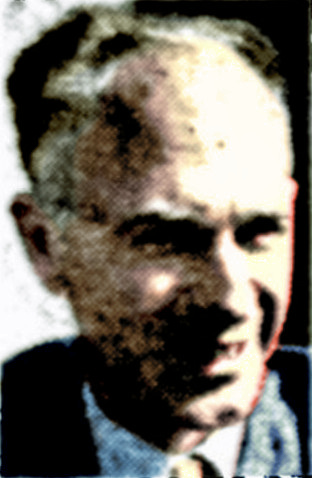GIRAUD SUCCEEDS DARLAN, ASKS UNITY
Military idol of two wars rules Africa
Fighting French expected to back him – assassin put to death
By C. R. Cunningham, United Press staff writer
Algiers, Algeria –
Gen. Henri Honoré Giraud, French military idol, was unanimously chosen French High Commissioner to succeed the assassinated Adm. Jean François Darlan, it was disclosed today, and immediately issued a proclamation calling for unity among Frenchmen in the war against Germany.
Selection of Gen. Giraud was accomplished in a one-hour meeting of the French Imperial Council in a scantly-furnished room at the summer palace. Barely 100 yards away, the body of Darlan lay in state. His assassin was executed yesterday.
The council, whose vote was unanimous, consisted of Gen. Giraud, Yves Chatel, Jean-Marie Bergeret, Gen. Auguste Noguès, and Pierre Boisson (Governor-General of French West Africa).
Appeals for unity
Immediately after his selection, Gen. Giraud issued an order of the day appealing to Frenchmen to unite behind him.
His proclamation said:
In assuming the functions of High Commissioners of French Africa after the tragedy which cost Adm. Darlan’s life, I ask all to stand united behind me to assure, with the support of our allies, the success of our armies.
Only one thing counts: France and her empire; there is but one aim: Victory.
[Signed] General of the Army, High Commissioner of French Africa, Commander-in-Chief of the land, sea and air forces.
Adm. Darlan’s assassin, a youth of 22 who was said to be a French citizen with an Italian mother living in Italy, was executed by a firing squad which carried out its task during an air raid. The sky full of tracer bullets and bursting anti-aircraft shells drowned the rattle of the execution squad’s rifles.
May unite all factions
The sentence was carried out only a few hours after an elaborate state funeral for Darlan, attended by French, British and U.S. officials.
Selection of Giraud, it was believed, would be an important unifying force among Frenchmen and would eliminate political difficulties which arose from the “Darlan deal” by which Allied forces were able to consolidate their North African military coup. Since Giraud has eschewed politics and has consistently opposed the Nazis, it was believed that Gen. Charles de Gaulle and his Fighting French might accept his leadership.
U.S. official at conference
For a time, it was feared that Giraud’s distaste for political activity and a belief that he could serve France best as a military personality might prevent his acceptance of the post.
The French council met for two hours, then adjourned without announcement. Among those at the conference was Robert Murphy, U.S. diplomatic official.
Word of Darlan’s death reached Lt. Gen. Dwight D. Eisenhower at the front, where he was conferring with U.S. combat leaders. He broke off the Christmas Eve conference, hastily left dinner, and dashed to Algiers by auto. He and his aide drove all night, taking turns at the wheel.
Christmas Day, Gen. Eisenhower parked his car at the roadside for a dinner of British rations, including plum pudding, then rushed on and arrived at Algiers Christmas night.
He received details of the assassination, which could not previously have been told him by telephone. He spent another night of little sleep and rose early for the funeral.
As French High Commissioner in North Africa, Giraud will have a double prestige, both political and military. He is expected to win to his side anti-Nazi Frenchmen who could not accept the “Darlan deal” and his military knowledge of the North African terrain is born of experience.
Upon graduation for the French Military Academy at Saint-Cyr, Giraud entered the 4th Regiment of Zouaves in Tunisia. He was with that regiment during part of World War I and afterward in 1922, took part in the operations in southern Morocco.
During the Rif revolt in 1925, he was the hero of numerous exploits.
He was for two years an instructor at the École supérieure de guerre, then went to Africa as commander over the Algerian-Moroccan borders, becoming the brigadier general.
In 1934, he was named commander of the Oran Division and in 1936 was made military governor of Metz and commander of the 6th Army Corps. He entered the Superior Council of War on June 3, 1939.
Best known to Americans for his daring escapes from the Germans during the two World Wars, Giraud is a hero to millions of Frenchmen.
When the North African invasion was planned, Giraud was quick to seize the opportunity to fight once more against the Germans and escaped from France to North Africa, making the trip in a British submarine.
